
views
New Delhi: Finally, it has come true. The Narendra Modi led NDA government at the Centre has conferred Bharat Ratna on iconic leader and statesman Atal Bihari Vajpayee.
Ending months of speculation, a day before his birthday, December 25, a communique from the Rashtrapati Bhawan announced, "PresidentMukherjee has been pleased to award Bharat Ratna to Pandit Madan Mohan Malaviya (posthumously) and to Shri Atal Bihari Vajpayee(sic)".
Even during the ten year rule of the Congress led UPA government, the BJP had demanded that Vajpayee should get the Bharat Ratna. When it did not materialize, the BJP promised that they would confer Bharat Ratna on Vajapyee, if the party is voted to power.
Bharat Ratna to Vajpayee has been wholeheartedly welcomed by the people cutting across party lines.
Vajpayee was the first Swayam-Sewak to become the prime minister of India and the first non-Congress Prime Minister to complete a full term in office. His long and winding political career is replete with ups and downs, spanning more than five decades in public life.
Associated with the RSS from a very young age he was deputed to work with the political affiliate of the Jan Sangh in early fifties. Vajpayee was mentored by Jan Sangh stalwarts Shyama Prasad Mukherjee and Deen Dayal Upadhyay.
Early in his political career, he was elected to the Lok Sabha in 1957 from Balrampur in Uttar Pradesh and impressed many with his oratorical skills.
With the early and untimely demise of his mentor Deen Dayal Upadhyay the mantle of the Jan Sangh leadership fell on the shoulders of Vajpayee, Nanaji Deshmukh, Balraj Madhok and LK Advani.
Vajpayee became the president of Jan Sangh for the first time in 1968. He was also an active participant and face of the anti-emergency movement led by Jai Prakash Narain. Vajpayee was incarcerated for many months along with other Jan Sangh leaders. He was first arrested and sent to Bangalore central prison along with LK Advani.
For the larger opposition unity to take on Indira Gandhi, the Jan Sangh merged with the Janata Party and with Morarji Desai as Prime Minister. He became the external affairs minister in the Janata Government in 1977.
The implosion of the Janata Party the issues of dual membership of Jan Sangh leader's and their association with the RSS led to the formation of Bhartiya Janata Party. He became its first president in 1980.
The elections post Indira Gandhi's assasination and anti-Sikh riots led to a rout for the BJP. The party winning just 2 seats in 1984 general elections. Vajpayee himself lost to young Madhav Rao Scindhia in Gwalior.
But the opening of the locks at the disputed site in Ayodhya led to a resurgence of sorts for the BJP. Again the BJP joined the anti-Congress opposition led by VP Singh's Janata Dal, but this time it supported the Janata Dal government from outside, only to withdraw support over the Mandal-Kamandal row.
It was during the Congress government of PV Narsimha Rao that the BJP consolidated its position between 1991 to 1996, winnning key states like Gujarat and Marashttra in the Assembly elections.
In the run up to the 1996 general elections, LK Advani declared Vajpayee as BJP's PM candidate. The BJP emerged as the single largest party and Vajpayee was sworn in as the Prime Minister. Having failed to muster numbers in 13 days, Vajpayee had to tender his resignation.
The opportunity arose again in 1998, this time the BJP could garner numbers in the Lok Sabha. But again with the AIADMK withdrawing support after 13 months, Vajpayee had to call elections in 1999.
And finally in 1998, Vajpayee was sworn in again as PM a comfortable majority with TDP lending outside support. As PM Vajpayee was quick to give his go ahead for the nuke test at Pokhran emerged as the liberal and acceptable face of the BJP and led the country druing the Kargil war.
His attempts to make peace with Pakistan is bus trip to Lahore and then invitation to Pakistani's military dictator General Pervez Musharraf for the much hyped Agra summit were perhaps the high points in his foreign policy. As the leader of the country the executive head Vajpayee never shied away from making his point even to the discomfort of some within his own party.
After the Gujarat riots in 2002, reacting to criticism of the then Gujarat chief minister Narendra Modi, he had famously said "Rajdharma ka palan karna chahiye".
In 2004, a confident BJP called elections before time riding on the India Shining campaign. Despite pollsters giving the BJP an edge, the party lost the elections. 2004 was the last election Vajpayee would contest as he slowly withdrew from active politics.
He now lives at a bungalow on Krishna Menon Marg in New Delhi with his family. His health condition has also been deteriorating.
WHAT MAKES VAJPAYEE A LIVING ICON?
- Among the many things Atal Bihari Vajpayee will be remembered for is his skill as an orator. His most riveting speech was the one he delivered on the floor of the Lok Sabha in 1996 during the confidence vote of his 13-day-old BJP government when it was on the verge of collapse. Vajpayee's speech that day stands out for multiple reasons. It was the first time a major political speech in Parliament had the attention of the entire nation as it was telecast live on Doordarshan. It was the beginning of an era where mass politics converged with mass communication to shape public opinion.
The master politician that Vajpayee was, he turned the negativity in parliament during the debate on the confidence motion to his advantage as he sought to win the confidence of the people. A poignant moment was when Vajpayee recounted his decades of experience in public service as he sought to counter his critics:
"I have spent decades doing this, but today I have been at the receiving end of much personal criticism... I thank the mere four parties that stood by me, including the Shiv Sena and the Akali Dal, despite everyone else ganging up against us... I have been accused that I am craving for power and that my actions are a result of my craving for power... If the people have given my party the highest number of seats should I shy away from staking a claim for power... Should I run away from the battlefield to betray the confidence reposed by the people in making us the single largest party...?
The question Vajpayee posed that day to the Lok Sabha and to the nation at large assumes relevance today as the 2014 Lok Sabha elections loom closer. The BJP is once again in the pole position to emerge as the single largest party in the Lok Sabha, going by the projections of most opinion polls.
It is instructive to note the arguments Vajpayee makes in defence of the first-past-the-post electoral system to make his case for why he attempted to form a government though he was short on numbers.
"I am being asked how many percentage votes did you get, but the Westminster method we have adopted, we don't look at percentage of votes, we look at seats, you can't have it both ways... It has happened many times that a party that has not won a plurality of votes but has won more seats... We have to only go by the number of seats and not by the percentage votes, we don't count negative votes in our parliamentary system... How can you say the mandate is against us, when we were not even a player in many states like Tamil Nadu, Andhra, and the fight was between those of you who have now gotten together to oppose us..."
In political terms, the portion of the speech most relevant to the present political debate was the political opportunism of the Congress, the Left parties and the regional parties, which came together to stop the BJP and Atal Bihari Vajpayee at all costs, even going to the extent of labelling Vajpayee 'Hitler'.
"Say clearly and directly that you will not let me assume power at any cost... The bogey of Hitler is being raised in this House, I am being labelled fascist... I have been at this for four decades, I have fought this fight democratically, contesting elections and I am being accused of adopting fascist methods... This is politics of negativism, this is reactionary politics, this is politics to stop us at any cost by making untouchables of us - this is not healthy politics..."
Reacting to Vajpayee's remarks, Somnath Chatterjee of the CPI-M stood up and screamed, "You are all alone, you stand all isolated."
It was from that grand isolation that Vajpayee went on to earn the mandate of the nation in two successive Lok Sabha elections with a BJP-led NDA government in Delhi.
As we mark Atal Bihari Vajpayee's 89th birthday, his speech from 1996 ought to be a reminder to those politically opposed to the BJP that negativism and dishonest political labelling have no place in our political process and will once again be rejected by the voters of India in 2014 as they did in the 1990s.










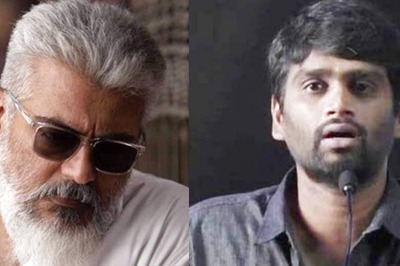



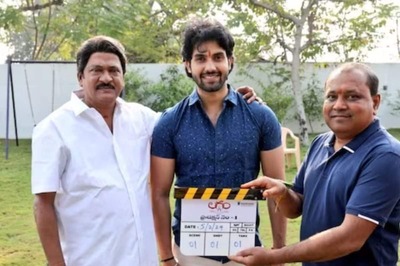

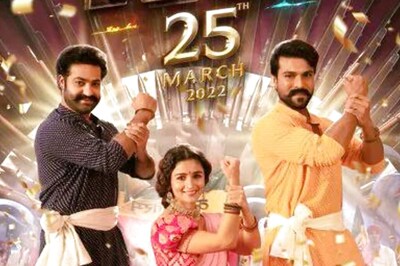

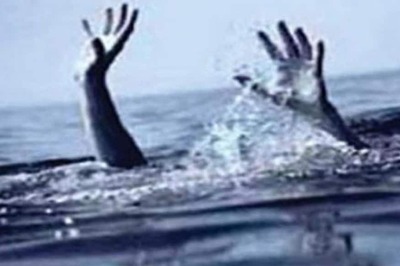
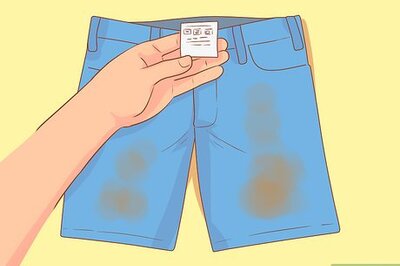
Comments
0 comment